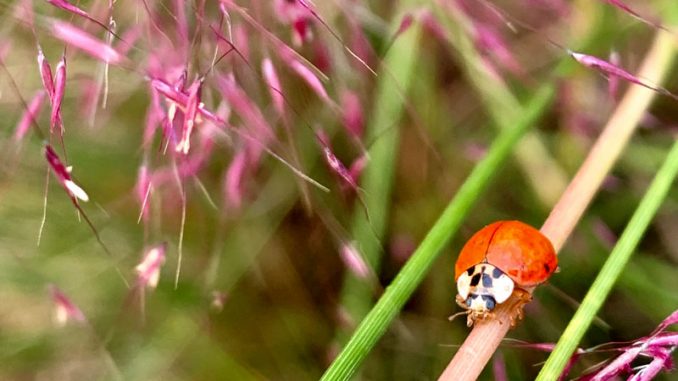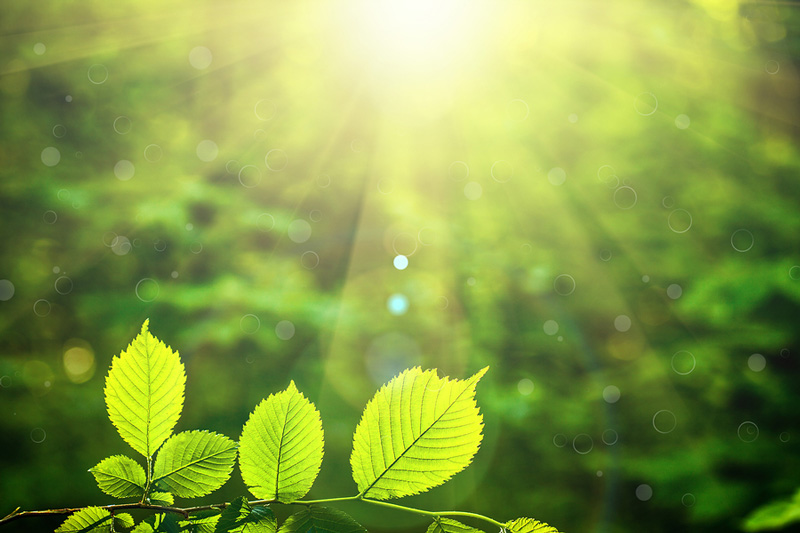
Tis the season. Amid the fray that we call American political life and during the ongoing sadness of manifestations of racial injustice and the ravages of COVID-19, it seems that we need a little Christmas.
That isn’t, however, the season I’m talking about here. It’s one that Pope Francis has touted, and it runs from Sept. 1 through Oct. 4.
A joint effort first championed by Orthodox Christians and joined by Catholics has taken on momentum among a number of denominations. It is the Season of Creation, which begins Sept. 1 on the World Day of Prayer for the Care of Creation, and ends Oct. 4 on the feast of St. Francis of Assisi.
For decades now, we have been getting alerts about environmental damage done by air and water pollution, lead poisoning, topsoil loss due to erosion, rising seas, disappearance of species, and the onslaught of severe storms.
Thirty years ago a group called the Physicians for Social Responsibility diagnosed the condition of our planet as critical. Not long after that assessment, St. John Paul II included in his encyclical “The Gospel of Life”, a reflection on the need for humanity to attend to its responsibilities toward the Earth environment.
While most of the encyclical was devoted to our obligations toward human life and human dignity and, consequently, the condemnation of abortion, euthanasia, and the killing of innocents, Pope John Paul II was forthright in his insistence that ecological responsibility tied in. He said that we are responsible for the planet while we are on it, but also for preserving it for future generations.
He declared, “It is the ecological question — ranging from the preservation of the natural habitats of the different species of animals and of other forms of life to ‘human ecology’ properly speaking — which finds in the Bible clear and strong ethical direction, leading to a solution which respects the great good of life, of every life.”
The idea of Care for Creation appears in at least five sections of the encyclical. So, when Pope Francis promulgated “Laudato Si’: On Care for Our Common Home” in 2015, it wasn’t truly novel for a pope to be talking about an earth ethic as something we ought to be attending to.
The U.S. Conference of Catholic Bishops, through its office of Justice, Peace, and Human Development, has suggested that we might appropriately devote time during this Season of Creation to three action steps that we can take as individuals, families, or larger groups.
The first is that we “reaffirm our vocation as stewards of creation.”
We have often heard that we live in a hyper-materialistic culture and that our economy has conditioned us into being a “throwaway society.” A number of folks I know have been looking at ways to downsize and invest in more durable goods. It’s a kind of both/and approach: clean out the garage and the closets, junk what is useless, hand over lightly used clothing and excess furniture to local thrift shops and charities, and begin living with less. The tiny house movement which has become popular, thanks to HGTV, DIY and others, reflects a kind of stewardship which resists the cultural pressure to spend and acquire, spend and acquire, in an endless cycle.
Periodically I have to confront myself with the fact that my closet still contains a few remnants of three sizes of me and that any illusion that one day the skinniest will again fit is pure nonsense. It’s not that everyone who frequents thrift shops will be dazzled by a collection of black and white, but there are some other things there (my camp and hermitage togs) that might do someone else some good.
The second recommendation is that we “thank God for his wonderful handiwork.”
The custom of saying grace before meals may have been modeled well on Friday night’s “Blue Bloods,” but it seems to have gone out of fashion in some Catholic homes.
A short pause to thank God for food and to ask a blessing on those who have prepared it is a simple expression of gratitude. Taking time to reflect on the gifts of the natural world is another act of thanksgiving.
We are counseled constantly to take time to breathe, to notice, to appreciate. Many of us in this diocese live near substantial bodies of water. The sisters I live with operate the St. Francis Center on St. Helena Island, and the chapel window offers a view of exquisite marsh. The next door neighbors have a floating dock, which shows how the marsh varies with the tides. When there is a king tide and a full moon, much of the yard is swamped. It isn’t unusual at all to sight herons, egrets, and ibis along the water’s edge.
Our Lowcountry’s segment of the Atlantic affords us repeated sightings of dive-bombing pelicans and glances at the rise and fall of smiling dolphins. The Midlands offer us expansive fields and streams and pine forests, while the upstate eases us into the Blue Ridge as we discover peach orchards. Aside from this, we might simply record what shows up in our own gardens and backyards — whether cats, deer, the occasional alligator, or a rabbit — and thank God for diversity.
While we have to admit that the natural world can seem our enemy, as in times of hurricanes and wildfires or viruses and poison ivy, much of the time it offers us healing and respite. As St. Thomas Aquinas said, we find “use and enjoyment” in creation, and he insists that, if we are paying attention, we will find that “every creature bears a vestige of the Trinity.”
The third action step which the bishops offer is that we “implore God’s help and ask God’s pardon.”
Pope Benedict XVI reminded us that “every violation of solidarity and civic friendship harms the environment.”
Long before Pope Benedict penned those words, prelates and saints had been pointing out that warfare grievously harms the good Earth as well as civilization and that environmental carelessness has grave effects on the poor. The Jewish faith of our Christian forebears has long held as an ideal the “healing of the Earth” or, translated another way, the restoration of the world.
As we prepare to glory in the love of Creation and its Creator, which St. Francis of Assisi exemplified, maybe we can examine our consciences a bit on the matter of our care for what Pope Francis has called “our common home.”
We deserve to grieve the losses in the natural world to which we might have contributed by over-consuming, littering, not caring for our property, or simply not bothering to recycle. With that, we also rightly cultivate joy in blue skies and fresh air. And, with St. Francis, we might just find that thinking of Brother Sun and Sister Moon, Brother Fire and Sister Water, will lead us to live a bit more gently and considerately.
Tis the season to praise and thank God. We don’t need to wait till the Christmas shows open in Myrtle Beach (if they do this year). Every day is full of glitz and presents.




